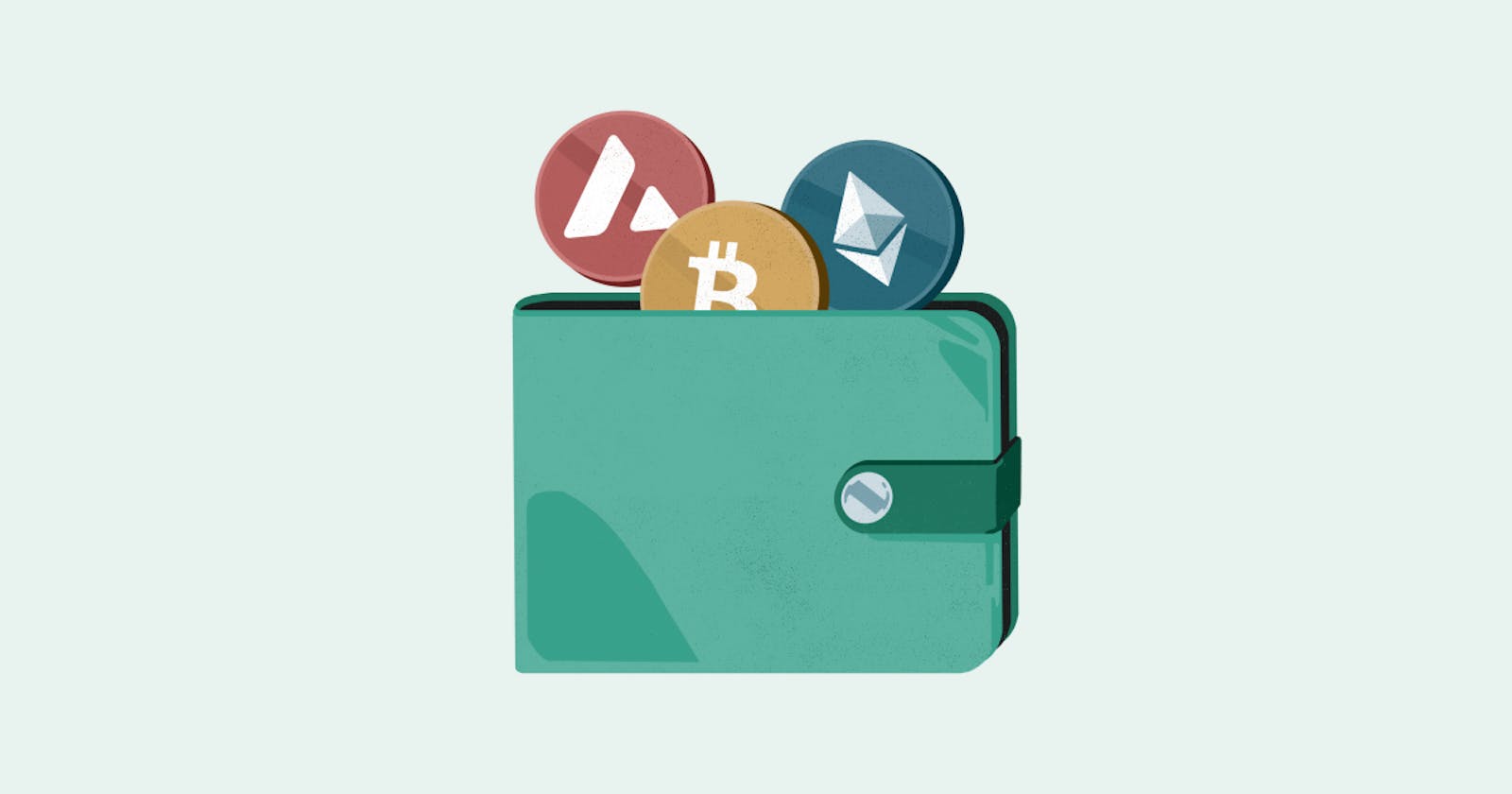TABLE OF CONTENT
• What Is a Crypto Wallet
• Types of Crypto Wallet
• Does Crypto Grow In Your Wallet
• Conclusion
As a beginner, after reading about crypto, your next thought would be; what’s next? What course of action is required of me first? But before diving so deep into that hole you need to equip yourself with the information about a crypto wallet.
When “wallet” comes to mind, you may assume that is just a regular wallet. Of course you cannot be walking down the street with wads/rolls of cash on your hands, you need somewhere safe to place it in but contrary to popular belief, crypto wallets do not physically hold cryptocurrencies like the wallet in your pocket. Instead, they store the public and private keys required to buy cryptocurrencies and provide digital signatures that authorize each transaction. So let’s Begin;
What is a Crypto Wallet?
With cryptocurrency, there is no tangible currency and no paper money to place within a physical wallet or purse. Cryptocurrency exists on the blockchain and there is no physical manifestation that a user touches. However, there is still a need for individuals and organizations to understand ownership of cryptocurrency assets and to be able to know how much is held, much like a bank account provides a bank balance. Hence, a crypto wallet provides a way for users to validate an account balance to provide visibility into how much cryptocurrency the user owns. For many users, a crypto wallet is a primary mechanism for managing cryptocurrency balances.
Cryptocurrency wallets store users’ public and private keys while providing an easy-to-use interface to manage crypto balances. They also support cryptocurrency transfers through the blockchain. Some wallets even allow users to perform certain actions with their crypto assets such as buying and selling or interacting with decentralised applications (dapps). “A key is a long string of random, unpredictable characters. While a public key is like your bank account number and can be shared widely, your private key is like your bank account password or PIN and should be kept secret. Together, they are needed to access and transfer cryptocurrency”.
So, the term ‘wallet’ is actually somewhat of a misleading term as crypto wallets don’t really store cryptocurrency in the same way physical wallets holds cash. Instead, they read the public ledger to show you the balances in your addresses and also hold the private keys that enable you to make transactions. When you are sending tokens, you are actually using your private key to sign the transaction and broadcast it to the blockchain network. The network will then include your transaction to reflect the updated balance in your address and that of the recipient’s.
TYPES OF CRYPTO WALLET
With crypto wallets, users get to choose not just the service or vendor that supplies a crypto wallet, but the distribution approach as well. There are functionally two core types of crypto wallets: Software-based hot wallets and Physical cold wallets.
Hot Wallets
The main difference between hot and cold wallets is whether they are connected to the Internet. Hot wallets are connected to the Internet, while cold wallets are kept offline. This means that funds stored in hot wallets are more accessible, and are easier for hackers to gain access to. In hot wallets, private keys are stored and encrypted on the app itself, which is kept online. Using a hot wallet can be risky because computer networks have hidden vulnerabilities that can be targeted by hackers or malware programs to break into the system. Keeping large amounts of cryptocurrency in a hot wallet is a fundamentally poor security practice, but the risks can be mitigated by using a hot wallet with stronger encryption, or by using devices that store private keys in a secure enclave.
Within the hot wallet category there are three types:
- Online (web) wallets: Perhaps the most common and widely used form of crypto wallet is found in online services. With an online wallet, such as a crypto exchange, it holds the user's public and private keys and the users access the wallet by logging in to the online service.
- Desktop wallets: With a desktop wallet, the cryptographic keys are stored in an application on a user's desktop system.
- Mobile wallets: A mobile app can be used to store a user's public and private keys for accessing and using cryptocurrency.
Cold Wallets
A cold wallet is entirely offline. While they’re certainly not as convenient as hot wallets, they are far more secure. within the category of cold wallets are two primary types:
- A Paper Wallet:
A paper wallet is a physical location where the private and public keys are written down or printed. In many ways, this is safer than keeping funds in a hot wallet, since remote hackers have no way of accessing these keys which are kept safe from phishing attacks. On the other hand, it opens up the potential risk of the piece of paper getting destroyed or lost, which may result in the loss of irrecoverable funds.
- A Hardware Wallet: A hardware wallet is an external device (usually a USB or Bluetooth device) that stores your keys. You can only sign a transaction by pushing a physical button on the device.
There are different reasons why an investor might want their cryptocurrency holdings to be either connected or disconnected from the Internet. Because of this, it’s not uncommon for cryptocurrency holders to have multiple cryptocurrency wallets, including both hot and cold wallets.
Hot Wallets vs Cold Wallets: Which is Better?
While both methods of storage have benefits and drawbacks, the option chosen depends on what the user is looking for.
If you plan to trade day-to-day, then accessibility will be of paramount importance, meaning that a hot wallet is probably a better choice.
However, if you are considering storing a huge amount of crypto assets and value security over convenience, then it might be wise to invest in a cold wallet.
If users are looking to use a specific cryptocurrency, they should make sure that the chosen crypto wallet technology supports the desired services.
DOES CRYPTO GROW IN YOUR WALLET
Your cryptocurrency will increase or decrease in value when stored in a wallet. Price can be higher or lower in time and the value of cryptocurrency will change regardless if it’s stored in a wallet or exchange. This applies to all types of wallets: hardware wallets and software wallets. It does not matter what the value of your coins were when you stored them, their price will fluctuate even if they are stored on an exchange or in a wallet.
CONCLUSION
Remember, your cryptocurrency is only as safe as the method you use to store it. While you can technically store crypto directly on the exchange, it is not advisable to do so unless in small amounts or if you plan to trade them frequently.
For larger amounts, it’s recommended that you withdraw the majority to a crypto wallet, whether in a hot wallet or a cold one. This way, you retain ownership of your private keys and have full power and control over your own finances.

